Relevance
Consult Surgical Oncologists Online (91 doctors)

Dr Shaikat Gupta Director Surgical Onco
Surgical Oncologist
34 Years • MBBS (University Gold Medalist), MS, FRCSEd
Kolkata
Apollo Multispeciality Hospitals , Kolkata, Kolkata
(225+ Patients)

Dr. Anil Kamath
Surgical Oncologist
13 Years • MBBS, MS,MCh,DNB
Bengaluru
Apollo Hospitals Bannerghatta Road, Bengaluru
(75+ Patients)
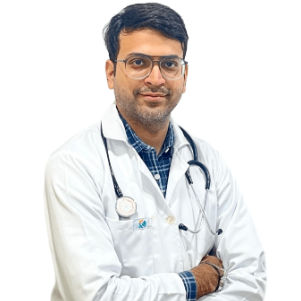
Dr. Hozefa Lokhandwala
Surgical Oncologist
10 Years • MBBS, MS (General Surgery), DrNB (Surgical Oncology). Consultant - Surgical Oncologist & HIPEC Specialist Special Interest in Gl & Gynaec Cancer Surgeries.
Indore
Apollo Hospitals Vijay Nagar, Indore
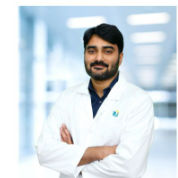
Dr. Levaka Rahul Reddy
Surgical Oncologist
5 Years • MBBS, MS (GENERAL SURGERY), DrNB(SURGICAL ONCOLOGY)
Hyderabad
Apollo Hospitals Jubilee Hills, Hyderabad

Dr. Umashankar Prakasam
Surgical Oncologist
10 Years • MBBS,M.S. General surgery,DNB Surgical Oncology
Chennai
Apollo Speciality Hospitals Vanagaram, Chennai

Dr. Gopal Kumar
Head, Neck and Thyroid Cancer Surgeon
15 Years • MBBS, MS , FARHNS ( Seoul, South Korea ), FGOLF ( MSKCC, New York )
Delhi
Apollo Hospitals Indraprastha, Delhi
(25+ Patients)
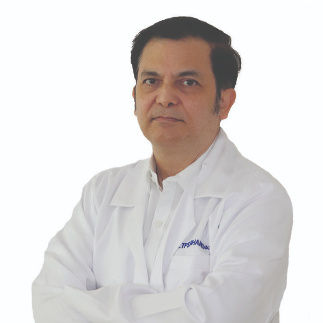
Dr. Trilok Pratap Singh Bhandari
Surgical Oncologist
24 Years • MBBS, MS (Gen. Surg.), DNB, FIS, MCh (Surg Onc), Adv. Onco plastic Breast Surg.
Hyderabad
Apollo Hospitals Jubilee Hills, Hyderabad
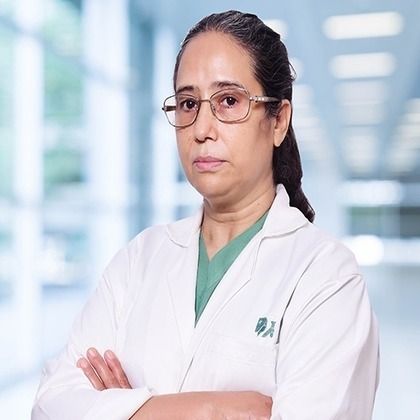
Dr. Ruquaya Ahmad Mir
Surgical Oncologist
20 Years • MBBS, DNB
Delhi
Apollo Hospitals Indraprastha, Delhi
(25+ Patients)
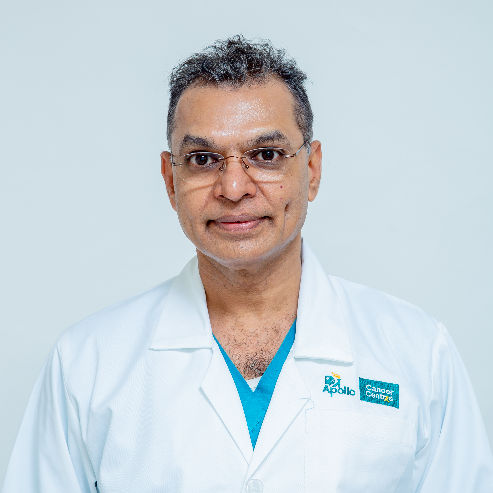
Dr C S Mani
Surgical Oncologist
20 Years • MBBS,MS, MCh, FRCS
Chennai
Apollo Hospitals Cancer Centre Nandanam, Chennai
(50+ Patients)
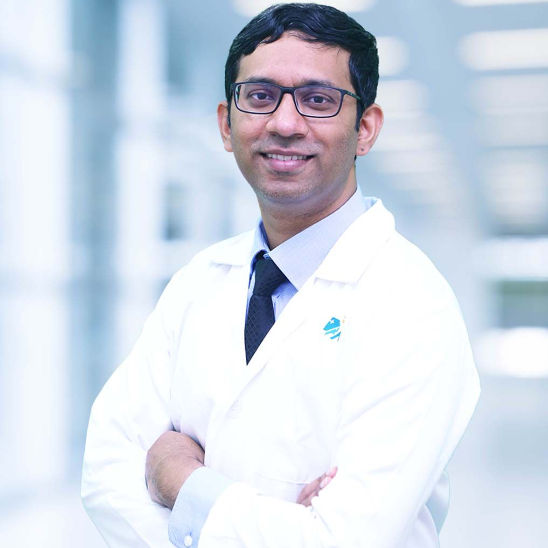
Dr. Ajesh Raj Saksena
Surgical Oncologist
8 Years • MS (Gen. Surgery), DNB (Surgical Oncology), Fellowship in Minimal Access Surgery (FMAS) Fellowship in Advanced Laparoscopic Surgery (Oncology)
Hyderabad
Apollo Hospitals Jubilee Hills, Hyderabad

Dr. Vishal Mukherjee
Surgical Oncologist
11 Years • MBBS, MS (General Surgery), DNB (General Surgery), DrNB(Surgical Oncology)
Siliguri
Brain and Pain Clinic, Siliguri
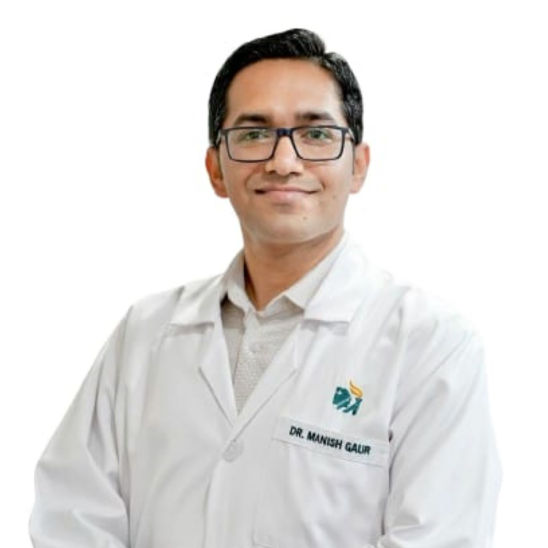
Dr. Manish Kumar Gaur
Surgical Oncologist
10 Years • MS (UCMS, Delhi), M.Ch Surgical Oncology (AIIMS, Delhi)
Delhi
Apollo Hospitals Indraprastha, Delhi
(25+ Patients)
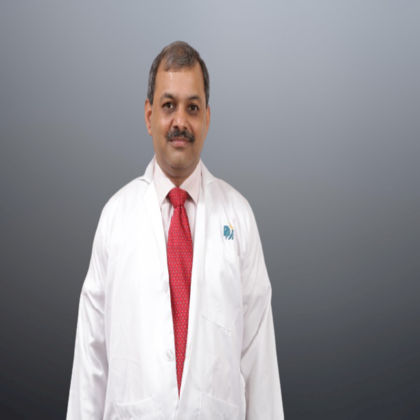
Dr. Vikash Mahajan
Surgical Oncologist
20 Years • MBBS, MS, MCh
Chennai
Apollo Hospitals Cancer Centre Nandanam, Chennai
(25+ Patients)
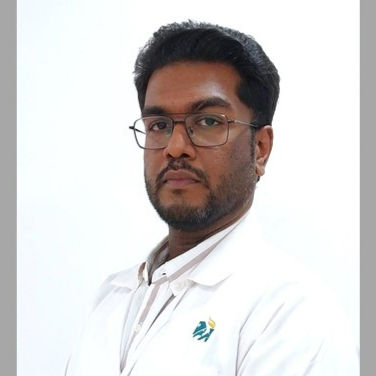
Dr. Kiran Kamalasanan
Surgical Oncologist
5 Years • "MBBS, MS (General Surgery), MCh (Surgical Oncology), DrNB (Surgical Oncology) "
Guwahati
Apollo Excelcare Hospital, Guwahati
(25+ Patients)

Dr. Palaniappan Ramanathan
Surgical Oncologist
14 Years • MBBS, MS General Surgery, MCh Surgical Oncology (AIIMS New Delhi) Special interest in Thoracic Oncology, Minimally Invasive Surgery, Robotic surgery and Breast oncoplasty
Bengaluru
Apollo Hospitals Sheshadripuram, Bengaluru
Surgical Oncology
Booking an appointment with a top surgical oncologist is now easier than ever with Apollo 24|7. Our user-friendly platform allows you to schedule online or in-person consultations with experienced surgical oncologists at trusted hospitals and clinics. With a wide range of convenient appointment slots available, you can choose a time that suits your schedule. Our team of skilled surgical oncologists is dedicated to providing comprehensive cancer care, from diagnosis to treatment and follow-up. Don't wait any longer; book your appointment with a surgical oncologist at Apollo 24|7 today and take the first step towards better health.
What is Surgical Oncology?
Surgical oncology is a specialised branch of oncology that focuses on the surgical treatment of cancer. This speciality plays a crucial role in the multidisciplinary approach to cancer care, which includes diagnosis, staging, treatment, and palliative care.
Surgical oncologists are instrumental in performing biopsies, removing tumours and surrounding affected tissue, and conducting reconstructive surgeries to restore function or appearance following tumour removal. The field is vital in healthcare as it directly impacts cancer survival rates and contributes to advancing cancer treatment through surgical innovations and techniques.
Who is a Surgical Oncologist?
A surgical oncologist is a highly trained specialist who manages and treats patients with cancer, primarily through surgical methods. Qualifying as a surgical oncologist requires completion of medical school, followed by general surgical training and further specialisation in oncology.
These professionals possess deep expertise in the complexities of cancer biology, patient care, and advanced surgical techniques. Surgical oncologists are adept at assessing the operability of cancers, performing complex surgeries, and collaborating with other oncology specialists to provide comprehensive cancer care.
Their role is pivotal in managing a broad range of cancers, including those affecting the breast, gastrointestinal tract, and skin, among others.
What Does a Surgical Oncologist Do?
A surgical oncologist is integral to the cancer treatment team, focusing on the surgical aspects of cancer care. These specialists play a crucial role in both the curative and palliative stages of treatment, striving to remove tumours and improve the quality of life for patients.
Diagnosis and Staging: Surgical oncologists often perform diagnostic surgeries to obtain tissue samples, which help determine the type and stage of cancer. Accurate staging is critical for developing an effective treatment plan.
Surgical Treatment: The primary responsibility is the surgical removal of tumours. This involves complex procedures to excise cancerous tissues while sparing as much healthy tissue as possible. Techniques vary widely, from traditional open surgeries to minimally invasive procedures using laparoscopy or robotics.
Multidisciplinary Collaboration: They work closely with medical oncologists, radiation oncologists, and other healthcare professionals to coordinate comprehensive treatment plans. This collaboration ensures that surgery is integrated effectively with chemotherapy, radiotherapy, and other treatments.
Follow-up Care: Post-surgery, they monitor patients’ recovery and manage any surgical complications. This phase is crucial for assessing the effectiveness of the treatment and planning further care if necessary.
Research and Education: Many surgical oncologists are also involved in clinical trials and research, contributing to advancements in surgical techniques and cancer treatments. They may also educate medical students and surgical residents, imparting skills and knowledge essential for the next generation of oncologists.
Their daily activities thus span a wide range of tasks, from operating theatres to research labs and patient consultations, each day shaped by the needs of their patients and the ongoing fight against cancer.
What are the Other Sub-specialities of Surgical Oncology?
Surgical oncology encompasses several sub-specialities, each targeting specific types of cancer. Here’s an overview of the key sub-specialities within this field:
Breast Cancer Surgery Specialist: A breast cancer surgeon focuses on the surgical removal of breast tumours and may perform procedures ranging from lumpectomies to full mastectomies, depending on the extent of the cancer.
Gastrointestinal Cancer Surgery Specialist: This specialist deals with cancers of the gastrointestinal tract, including the stomach, liver, pancreas, and intestines, employing various surgical techniques to remove tumours and often part of the affected organs.
Head and Neck Cancer Surgery Specialist: A specialist for head and neck tumours manages cancers of the mouth, throat, sinus, larynx, and other related structures, often working to preserve vital functions such as speech and swallowing.
Hepatobiliary Cancer Surgery Specialist: This sub-speciality focuses on cancers of the liver, gallbladder, and bile ducts. Surgeons in this area are skilled in complex procedures that often involve resecting diseased portions of these organs.
Sarcoma Surgery Specialist: A surgeon for sarcoma removal is trained to deal with sarcomas of the bones and soft tissues, ensuring meticulous surgical intervention to remove these often aggressive tumours.
Melanoma Surgery Specialist: Specialists in melanoma focus on the removal of melanoma cancers, primarily skin cancers, which may involve wide excision techniques to ensure complete removal of cancerous cells.
Colorectal Cancer Surgery Specialist: This sub-speciality handles cancers of the colon and rectum, using both open and minimally invasive surgical methods to remove cancerous growths and, in some cases, restore bowel function.
Thoracic Cancer Surgery Specialist: Thoracic surgeons treat cancers of the chest, including the lungs and oesophagus, often performing highly technical surgeries to remove tumours while preserving as much lung function as possible.
Genitourinary Cancer Surgery Specialist: This area covers cancers of the urinary system and male genital organs, including the bladder, kidneys, prostate, and testicles. These specialists are adept at surgeries that not only aim to remove cancer but also strive to maintain patient quality of life.
Endocrine Cancer Surgery Specialist: Focusing on cancers of the endocrine system, such as the thyroid and adrenal glands, this sub-speciality requires precise surgical techniques to remove tumours while minimising effects on hormone production.
Each cancer surgeon is a highly trained cancer surgery specialist who plays a vital role in the management of cancer, providing patients with specialised surgical care tailored to their specific needs.
What are the Surgical Oncology Examinations or Tests Performed by the Surgical Oncologist?
In surgical oncology, several critical diagnostic tests and examinations are routinely performed to accurately diagnose, stage, and plan treatment for cancer patients. These assessments are vital for tailoring the most effective treatment strategies. Here’s an overview of the most common diagnostic procedures:
Biopsy: The most definitive test for cancer diagnosis. A surgical oncologist removes a small sample of tissue from the suspected area, which is then examined microscopically to confirm the presence of cancer cells.
Endoscopy: This involves using a flexible tube equipped with a camera and light, known as an endoscope, to visually examine the internal organs and surfaces. It’s often used to assess gastrointestinal and respiratory tracts.
Imaging Tests: These include CT scans, MRIs, PET scans, and ultrasounds, which provide detailed images of the body’s internal structures. These images help in determining the location, size, and spread of the tumour.
Sentinel Lymph Node Mapping: Used primarily in cases like breast cancer and melanoma, this technique helps identify the first lymph node to which cancer cells are likely to spread from the primary tumour.
Laparoscopy: Sometimes called ‘keyhole surgery,’ this minimally invasive surgery allows doctors to look inside the abdomen and pelvis, helping them to see the cancers directly and assess their extent.
Genetic Testing: Increasingly used to determine the genetic profile of a tumour, which can guide the selection of targeted therapies.
Each of these examinations enables the surgical oncologist to build a comprehensive understanding of a patient’s condition, facilitating tailored surgical interventions. If you need to undergo any of these procedures, it’s advisable to book surgical oncologist who specialises in your type of cancer to ensure the best care and treatment plan.
What are the Common Conditions & Diseases that Surgical Oncologists Treat?
Surgical oncologists specialise in treating a variety of cancers, each requiring specific surgical expertise. Here are the top 15 conditions they commonly manage:
Breast Cancer: A malignant tumour that develops from breast cells.
Colorectal Cancer: Cancer of the colon or rectum, located in the digestive tract's lower part.
Lung Cancer: A disease in which malignant cells form in the tissues of the lung.
Prostate Cancer: Cancer in a man's prostate, a small gland that produces seminal fluid.
Melanoma: The most serious type of skin cancer that develops in the cells (melanocytes) that produce melanin.
Ovarian Cancer: Cancer that forms in or on an ovary.
Pancreatic Cancer: A disease in which malignant cells form in the tissues of the pancreas.
Liver Cancer: Cancer that starts in the cells of the liver.
Oesophageal Cancer: Cancer that occurs in the oesophagus, a long, hollow tube that runs from your throat to your stomach.
Stomach Cancer: Also known as gastric cancer, it forms in the lining of the stomach.
Head and Neck Cancers: Cancers that develop in the mouth, throat, nose, or surrounding areas.
Thyroid Cancer: Cancer that starts in the thyroid gland, located at the base of the neck.
Bladder Cancer: Affects the bladder muscles.
Sarcomas: Cancers that develop in bones and soft tissues, including muscle and fat.
Gynaecological Cancers: Cancers affecting the female reproductive organs.
Reasons to See a Surgical Oncologist
Visiting a surgical oncologist is crucial when dealing with symptoms or conditions that hint at cancer. Key reasons to consult a specialist include:
Unexplained Lumps or Swelling: Any new lumps or changes in existing lumps on the body should be evaluated.
Persistent Pain: Ongoing pain without a clear cause could be a sign of underlying issues.
Changes in Moles or Skin: Any new or changing moles or skin abnormalities should be assessed for melanoma.
Abnormal Bleeding: Unusual bleeding or discharge from any part of the body can indicate cancer.
Digestive Changes: Persistent digestive issues or changes in bowel habits can signal gastrointestinal cancers.
If you suspect any of these symptoms or have been referred by your GP, an online surgical oncologist consultation might be a practical first step towards diagnosis and treatment.
What Types of Procedures do Surgical Oncologists Perform?
Surgical oncologists are equipped to perform a wide range of procedures that are essential in the diagnosis, treatment, and management of cancer. These can be broadly categorised into two groups: Top Therapies and Top Surgeries.
Top Therapies in Surgical Oncology:
Chemotherapy Administration: Direct injection of cancer-fighting drugs into the bloodstream or specific body cavities to shrink or kill cancerous cells.
Hormone Therapy: Utilises hormones or hormone-blocking drugs to fight hormone-sensitive tumours, such as certain types of breast or prostate cancer.
Immunotherapy: Employs substances to boost or restore the body’s natural defences against cancer.
Targeted Therapy: Involves drugs or other substances that precisely identify and attack cancer cells, usually while doing little damage to normal cells.
Radiofrequency Ablation: Uses high-energy radio waves to heat and destroy cancerous tissue.
Top Surgeries in Surgical Oncology:
Tumour Removal (Excisional Surgery): The surgical removal of an entire tumour, often with some surrounding tissue to ensure all cancerous cells are extracted.
Biopsy: A diagnostic procedure where a piece of tissue is removed for laboratory examination to determine if cancer cells are present.
Lymph Node Dissection: Removal of lymph nodes near the cancerous area to examine for spread of the disease.
Mastectomy: Removal of all breast tissue, typically to treat or prevent breast cancer.
Lumpectomy: Removal of a tumour and a small margin of surrounding tissue from the breast.
Prostatectomy: The surgical removal of part or all of the prostate gland in men.
Cytoreductive Surgery: A procedure used to remove as much of the cancer as possible, often followed by other treatments.
Gastrectomy: Partial or total removal of the stomach.
Hepatectomy: Surgical removal of part or all of the liver.
Whipple Procedure: A complex operation to remove the head of the pancreas, the first part of the small intestine (duodenum), the gallbladder, and the bile duct.
Each of these procedures requires specific expertise and advanced equipment, often contributing to the overall surgical oncologist fee. Whether considering therapies or surgeries, a surgical oncologist’s role is pivotal in managing and treating cancer effectively.
Why Choose an Apollo 24|7 Surgical Oncologist?
Choosing a surgical oncologist at Apollo 24|7 offers several benefits. Our surgical oncologists are highly trained and experienced in their field, having specialised training in cancer surgery and management.
They work closely with a multidisciplinary team of oncologists, radiologists, and other specialists to provide comprehensive cancer care. Apollo 24|7 offers state-of-the-art facilities and advanced treatment options, ensuring patients receive the best possible care. Our surgical oncologists prioritise personalised care, taking the time to understand each patient's unique needs and concerns.
With the convenience of online consultations and seamless access to in-clinic appointments, Apollo 24|7 provides a patient-centric approach to cancer care, ensuring that our patients receive the support and expertise they need throughout their cancer journey.
What to Expect When Visiting a Surgical Oncologist?
Visiting a surgical oncologist can be a pivotal step towards effective cancer treatment. Patients can anticipate a thorough examination, detailed discussions about potential treatment options, and compassionate care tailored to their specific needs.
Initial Consultation: This meeting involves a comprehensive review of the patient’s medical history, symptoms, and any prior diagnostic tests. The oncologist may also discuss the patient's family history and lifestyle factors that could influence treatment decisions.
Diagnostic Assessments: Patients may undergo various diagnostic tests such as imaging scans, blood tests, or biopsies to ascertain the extent of the cancer and plan appropriate interventions.
Treatment Planning: Based on the diagnosis, the surgical oncologist will outline potential treatment plans, which may include surgery, adjunct therapies, or a combination thereof. They will explain the aims, potential risks, and expected outcomes of suggested treatments.
Follow-Up Care: The specialist will discuss follow-up care, which includes post-operative care, monitoring recovery, and scheduling regular check-ups to manage any long-term effects of cancer or its treatment.
Patients looking for a specialist can search for a "surgical oncologist near me" online to find well-reviewed professionals in their area. It’s also beneficial to read surgical oncologist reviews to gauge the experiences of previous patients.
How Can I Get an Appointment With a Surgical Oncologist?
Getting an appointment with a surgical oncologist at Apollo 24|7 is easy and convenient. Here's how you can book an appointment:
Online Booking: Visit the Apollo 24|7 website and navigate to the "Book Appointment" section. Select "Surgical Oncology" as the speciality and choose your preferred surgical oncologist. Select a suitable date and time for your consultation and provide the necessary details to confirm your appointment.
Apollo 24|7 App: Download the Apollo 24|7 app on your smartphone and log in or create an account. Select "Consult" and choose "Surgical Oncology" as the speciality. Pick your preferred surgical oncologist and select a convenient date and time for your appointment. Provide the required information and confirm your booking.
Offline Booking: You can also book an appointment by calling the Apollo 24|7 helpline or visiting your nearest Apollo Hospital. Provide the necessary details, including your preferred surgical oncologist and the reason for your visit, and the customer service representative will assist you in scheduling an appointment.
Surgical Oncologists in top cities
- •Best Surgical Oncologists in Chennai
- •Best Surgical Oncologists in Delhi
- •Best Surgical Oncologists in Hyderabad
- •Best Surgical Oncologists in Kolkata
- •Best Surgical Oncologists in Bengaluru
- •Best Surgical Oncologists in Ahmedabad
- •Best Surgical Oncologists in Karimnagar
- •Best Surgical Oncologists in Mumbai
- •Best Surgical Oncologists in Noida
- •Best Surgical Oncologists in Bilaspur
- •Best Surgical Oncologists in Chinagadila
- •Best Surgical Oncologists in Lucknow
- •Best Surgical Oncologists in Madurai
- •Best Surgical Oncologists in Mysuru
- •Best Surgical Oncologists in Akola
- •Best Surgical Oncologists in Arepally
- •Best Surgical Oncologists in Banglore
- •Best Surgical Oncologists in Bhubaneswar
- •Best Surgical Oncologists in Guwahati
- •Best Surgical Oncologists in Hyderguda
Related Treatments
- •Treatment for Breast Cancer
- •Treatment for Acute Diarrhea Treatment
- •Treatment for Bladder Cancer
- •Treatment for Adrenal cancer
- •Treatment for Bile Duct Cancer Cholangiocarcinoma
- •Treatment for Breast Cancer Screening
- •Treatment for Adolescent and Young adult Cancers
- •Treatment for Ampullary cancer
- •Treatment for Anal Cancer
- •Treatment for Blood Cancer
- •Treatment for Brain Cancer Treatment
- •Treatment for Brachydactyly
- •Treatment for Adopted Child Syndrome Treatment
- •Treatment for Adrenal Masses
- •Treatment for Ankle Pain
- •Treatment for Arthritis Physiotherapy
- •Treatment for Blocked Blood Vessels
- •Treatment for Bone Cancer
- •Treatment for Brain metastases
- •Treatment for Breast cysts
Related Procedures
FAQs
What are the most common surgical oncology procedures?
The most frequent procedures include biopsies, tumour removals, lymph node dissections, and mastectomies. Surgical oncologists also perform complex surgeries like gastrectomies, prostatectomies, and hepatectomies, often utilising minimally invasive techniques such as laparoscopy or robotic surgery to reduce recovery times and improve outcomes.
What is the difference between medical oncology and surgical oncology?
Medical oncology involves treating cancer with chemotherapy, hormone therapy, and other medications, focusing on systemic treatment. In contrast, surgical oncology specialises in diagnosing and removing cancer through surgery. This can include removing tumours, affected lymph nodes, and other surgical methods to treat and manage cancer.
What are the benefits of surgical oncology?
Surgical oncology offers the potential to completely remove cancer from the body, providing a direct method to eliminate tumours. It can offer definitive diagnosis and staging of cancer, reduce symptoms, and sometimes prevent cancer recurrence. Surgical interventions can also be combined with other treatments for a comprehensive approach.
What is the role of surgical oncology?
The primary role of surgical oncology is to physically remove cancerous tissues from the body. Surgical oncologists are crucial in the staging of cancer, determining the extent of disease spread and removing tumours or metastases. They also play a vital role in biopsy procedures and collaborate in multidisciplinary teams to plan comprehensive treatment.
Why see a surgical oncologist?
Seeing a surgical oncologist is essential if surgical intervention is recommended as part of your cancer treatment. They possess specialised skills in removing cancer while preserving as much healthy tissue as possible, crucial for cancers requiring complex surgeries or where precise, skilled excision can impact the prognosis significantly.
What is the procedure of surgical oncology?
The procedure in surgical oncology typically begins with a thorough diagnosis and planning stage, followed by the surgical removal of the tumour and any potentially affected tissues or lymph nodes. Post-surgery, the focus shifts to recovery and monitoring, including further treatment with chemotherapy or radiation if necessary, to manage any remaining cancerous cells.
What anaesthesia is used for oncology surgery?
The type of anaesthesia used in oncology surgery depends on the specific procedure. General anaesthesia is common for extensive surgeries to ensure the patient is unconscious and pain-free during the operation. Local or regional anaesthesia may be used for less invasive procedures, allowing faster recovery and less postoperative pain management.
Do surgical oncologists remove benign tumours?
Yes, surgical oncologists often remove benign tumours if they pose a health risk, such as causing pain, obstructing organs, or potentially turning malignant. Removing benign tumours can also be necessary to alleviate symptoms, improve function, and prevent future complications related to the growth.
When to see a surgical oncologist?
You should see a surgical oncologist when a diagnosis of cancer has been made or is strongly suspected, and surgical intervention is considered a viable treatment option. They are also consulted for definitive diagnosis through biopsies or when cancer staging requires surgical exploration to determine the extent of the disease.
Is surgical oncology high-risk?
Surgical oncology can be high-risk depending on the type of cancer, the complexity of the surgery, and the patient’s overall health. Risks include complications from anaesthesia, infection, and impacts on organ function. However, advanced surgical techniques and rigorous pre-operative planning have significantly improved safety and outcomes in cancer surgery.